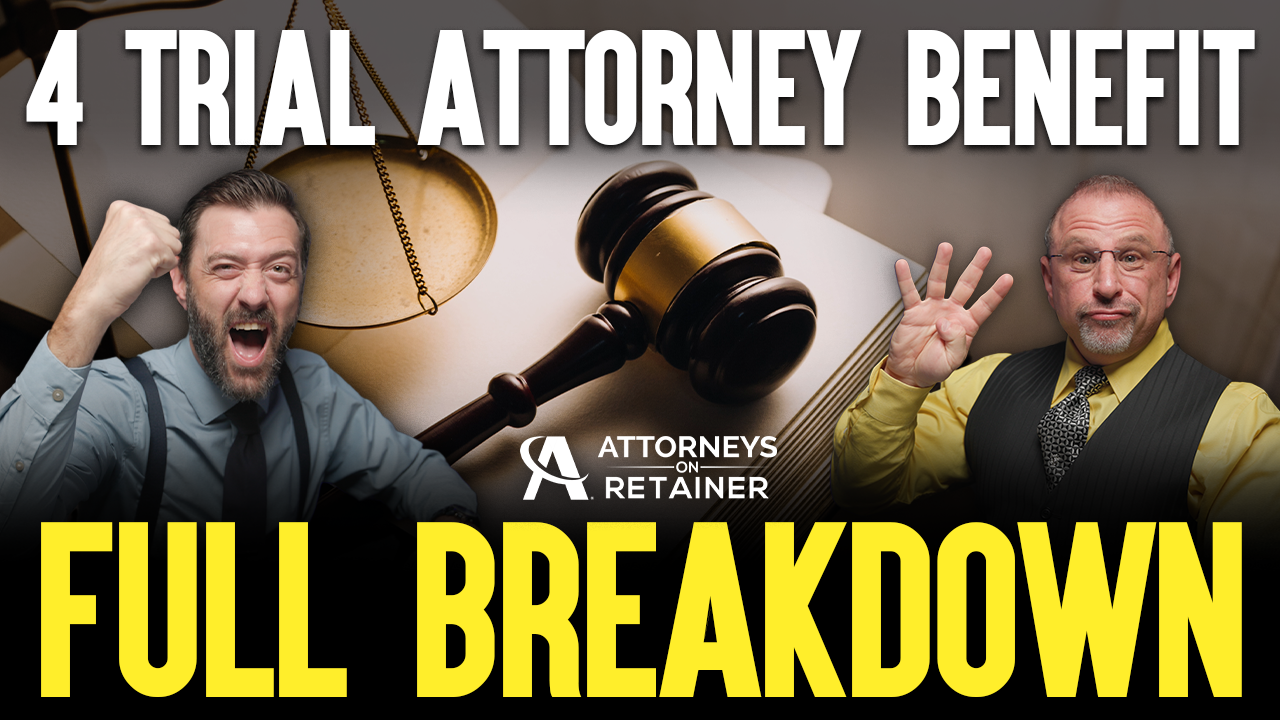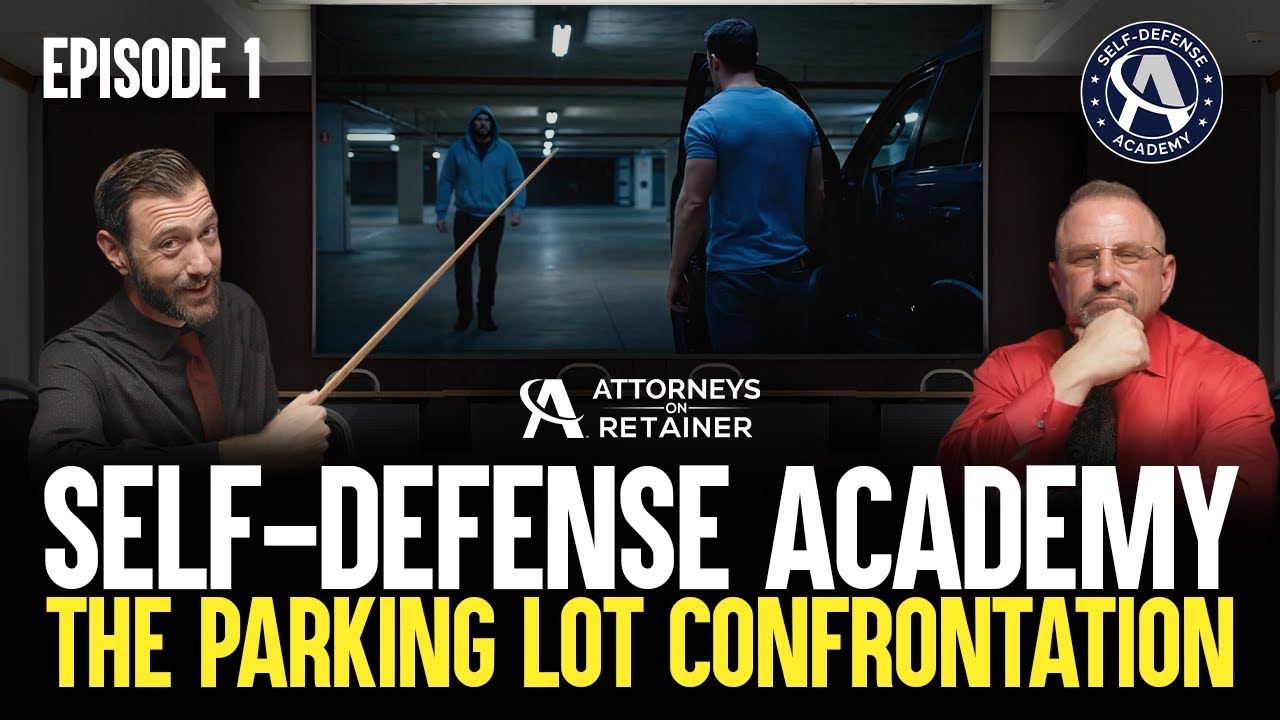Gun Free Zones - Do They Make Us Safer?
December 14, 2023
AOR Program Update - 4/1/25
The Attorneys On Retainer Program has been updated since this video was initially released. The program is designed with the same strengths as the original program, particularly its close affiliation with the only law firm in the United States working solely on self-defense cases, and this new program includes much more! For additional information, click here.
As someone who values freedom and individual rights, I have always been interested in whether gun-free zones make us safer. I recently had a chance to discuss this topic with some of my colleagues from the Attorneys For Freedom Law Firm. We were joined by Lauren, a paralegal at our firm who is deeply passionate about defending the Second Amendment. In our conversation, we discussed legal details, personal stories, and the big picture of what gun-free zones mean to our safety.
Key Points:
- Lauren’s Advocacy and Testimony
- The Legal and Historical Context of Sensitive Places
- Current Legal Battles
- The Role Our Supreme Court Plays
- Closing Thoughts and Advocacy
Lauren’s Advocacy and Testimony
“I am a person with a disabling condition, and I cannot fight physically, and I do not have the privilege of being able to just run away because I cannot run, and I cannot wait for the police to show up to help me.”
Lauren shared how her involvement in the gun rights movement began, thanks to Cheryl Todd, a well-known advocate for gun rights. Cheryl introduced Lauren to the community and helped her testify before the Arizona Senate Judiciary Committee. During her testimony, Lauren was given 90 seconds to argue for the right of responsible gun owners to carry firearms in traditionally gun-free zones, drawing from her own experience of narrowly escaping an attempted kidnapping. Lauren’s story highlighted the real-life importance of being able to protect oneself, especially in places where guns are typically banned.
“It really made me realize how dangerous gun-free zones actually are. I do not want to be a victim, and that is why I carry my gun. Your right to protect yourself and your family should not end at an invisible line.”
During Lauren’s testimony, she emphasized how important it is for everyone, especially people with disabilities, to be able to protect themselves. However, not everyone in the room agreed with her. Some lawmakers argued against her views, showing how difficult it is for gun rights supporters in today’s divided political climate.
The Legal and Historical Context of Sensitive Places
Our discussion then shifted to the broader legal and historical context of “sensitive places,” a concept that has evolved through key court rulings, notably the Heller (2008) and Bruen (2022) decisions.
Heller Decision (2008)
In 2008, the Supreme Court made a major decision in the case District of Columbia v. Heller that impacted the right to own guns. The court ruled that people have the right to own guns for self-defense at home. However, they also agreed that it is okay to ban guns in certain “sensitive places,” like schools and government buildings. The decision did not clearly define what makes a place “sensitive,” leading to ongoing debates and legal issues about where exactly guns can be banned.
Bruen Decision (2022)
Several years later, in 2022, the Bruen case expanded Second Amendment rights by confirming that people have the right to carry firearms in public for self-defense. However, the ruling also allowed for restrictions in certain sensitive places if they were in line with historical practices. This decision has led to important legal debates as some states try to expand the definition of “sensitive places” to include more locations.
“If you are a competent adult and you have got some kind of a weapon if you are not a threat to other people… it is a good thing that you have a weapon.”
Antonyuk v. Nigrelli (2023)
This case was important because it questioned New York’s latest gun laws, which added more places where carrying guns is not allowed. The court’s decision against some of these laws was a big moment in the ongoing debate about how to keep people safe while respecting Second Amendment rights. The case, Antonyuk v. Nigrelli, not only helped make it clearer which places should be considered sensitive but also set an example for how similar cases might be handled in the future.
Current Legal Battles
Right now, legal disputes are happening in states like New York, New Jersey, and Hawaii. The government is seeking to expand what counts as “sensitive places,” often including big cities. This has led to major legal challenges because some people believe that these broad rules go against the Second Amendment, which protects the right to bear arms.
- Legal Battles in New York and New Jersey: Both states have passed new laws that add more places to the list of “sensitive locations,” where carrying weapons is restricted. However, some people are suing because they believe the new laws go against the Supreme Court’s decisions in the Heller and Bruen cases.
- Legal Battles in Hawaii: The case of Wolford v. Lopez is being reviewed by the Ninth Circuit Court, which could affect how much states can limit guns in certain important places. This case might eventually go to the Supreme Court, where it could have a substantial impact on gun rights in the United States.
The Role Our Supreme Court Plays
The Supreme Court’s recent decisions have made tremendous changes to how we understand Second Amendment rights, which relate to owning and using guns. One key decision, the Bruen decision, changed the way courts look at gun control laws. Before, courts would use a method called “levels of scrutiny” to decide if these laws were okay. But now, the Bruen decision says that any law about guns must be connected to the country’s historical traditions. This new rule has made it difficult for lower courts to figure out how to balance current laws with what was done in the past.
The current Supreme Court, which strongly supports the Second Amendment, is expected to keep influencing gun rights in a way that favors more freedom. Future cases will clarify where guns can be restricted and whether strict policies, like those in New York and New Jersey, are allowed under the Constitution.
“The fight for freedom is a fight that has been going on as long as humans have been walking on the planet. It is, I think, the most noble fight that you can be involved in.”
Closing Thoughts and Advocacy
Even though the Supreme Court has made decisions, some states are still pushing back and trying to expand what they consider “sensitive places” where guns should not be allowed. This pushback shows the deep political divide in the United States. On one side, more states want stricter gun control laws, while at the same time, federal courts are leaning toward supporting gun rights.
We also discussed how the media influences how people view guns. We believe that the media often does not report enough on the positive uses of guns, like when they are used for self-defense. This can lead to a one-sided public view that focuses more on the dangers of guns and less on their protective benefits. One area where guns have a poor reputation is when it comes to issues like suicide, which makes the gun control debate more complicated.
“The only way to stop a bad guy with a gun is a good guy or gal with a gun.”
Lauren is still strongly committed to fighting for Second Amendment rights, not just for women but for everyone. She is actively involved with Women for Gun Rights, which drives her activism, and she encourages others to support the cause.
We are hopeful about the future of gun rights in the United States because of the current Supreme Court’s position. At the Attorneys For Freedom Law Firm, we remain dedicated to defending people’s rights, with advocates like Lauren leading the ongoing fight for freedom.
We hope you enjoyed Lauren’s testimony and found this information beneficial. If you want reliable legal defense for self-defense cases without all the unnecessary exclusions, be sure to check our Attorneys On Retainer Program. For more information, contact us by calling (866)-404-5112 or email us.



